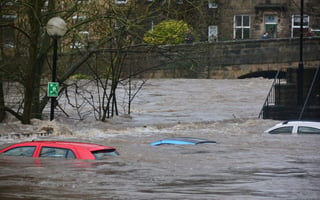A crisis can take many shapes and forms.
Companies are built on their reputations.
But those reputations are fragile. A single incident can cause severe damage.
In some cases, reputations are destroyed.
There is a quote from Benjamin Franklin that sums this up perfectly. He said: “It takes many good deeds to build a good reputation, and only one bad one to lose it.”
Good crisis media management helps organisations protect their reputation.
But how do you measure that reputational hit and the success of your crisis media management response?
One of the challenges surrounding assessing reputational damage is it is not an exact science.
It is all about perception.
Consequently, we don’t have a standard way of measuring it, making it tricky to quantify.
Typically, a loose assessment is made by judging the tone of media coverage and the social media reaction.
But can we do better?
This is something we will discuss in the next instalment of our exclusive four-part crisis communication series for members of The Media Team Academy.
Sean Ryan, a former national journalist and now director of comms at a high-profile charity, will lead the session.
And I got a sneak preview of what he will discuss, including how you can assess the reputational hit of a crisis.
Income
A crucial way of assessing the reputation ramifications is to look at whether the crisis is impacting your income.
Remember, this is the age of the boycott. Almost as soon as an organisation is perceived to have done something wrong, there are social media calls for people to boycott it.
#Boycott has become a popular way for consumers to show their displeasure.
So, is your crisis resulting in customer loss? Is it affecting your bottom line?
It is worth considering that a survey last year showed 86 per cent of companies believe reputational damage would translate to loss of income.
If you are a charity – and some of the most damaging recent crises have involved them – are you getting fewer donations? Are you losing volunteers?
A poll by Third Sector six months after the Oxfam scandal broke showed 60 per cent of people were less likely to donate to the charity. It also lost volunteers.
Share price
As well as customer churn, another good reputation indicator is your share price.
The rise and fall of share value tends to mirror an organisation’s image.
When Ryanair announced the loss of 3,000 jobs in 2020, its share price fell by four per cent. Back in 2010, Toyota’s shares dropped by 15 per cent after it recalled more than 8 million vehicles.
Research from Deloitte has revealed it can take 80 days for a company to recover lost share price after a crisis.
Brand tracking
This is a way of continually measuring the health of your brand and what people think about it.
It can include metrics such as brand loyalty, brand awareness and brand preference.
The daily data provided by some of these services, such as YouGov, can help you detect emerging crises.
And it can also enable you to evaluate how your crisis responses are landing and the impact the incident has on your reputation.
That constantly updated insight can help you tweak your strategy and tactics if necessary.
Internal
Your people are your greatest assets. How do they feel about what has happened?
Do they have concerns? Do they have ideas on how to avoid something similar happening in future?
The impact of a crisis stays with employees much longer after the public and media have moved on.
If they feel disgruntled about how an incident is being managed, and believe their concerns are not heard, you could get leaks - potentially triggering another reputational crisis.
Longer-term, this could result in a loss of talent and hinder your ability to recruit the best people.
Employee engagement surveys are an excellent way of assessing the impact of a crisis on your people.
News cycle
In an ideal world, your crisis will get little coverage.
But if it does become the centre of media attention, how quickly does the spotlight move on?
If the news cycle rapidly moves on to something else and there is no longer much attention on your organisation, the reputational hit will likely be less.
If you have decided to try and put positive stories out there while, or after, managing the crisis – an approach Sean will discuss during the masterclass – and they are getting coverage, that could improve the perception of your brand.
However, the longer the media focuses on your crisis, the more damage there is likely to be to your reputation.
A good media monitoring agency should be able to help here.
Do you want more?
Well, during the exclusive masterclass for members of The Media Team Academy, Sean will reveal more ways you can assess reputational impact.
And he will look at how you can build reputation resilience by increasing awareness of the risks and being better prepared for when the worst happens.
If you are a member of The Media Team Academy, check your inbox for the invite.
If you’re not a member, you can’t get access. But we can fix that for you – drop us a line at hello@mediafirst.co.uk or give us a call on 0118 9180530 and ask to speak to someone about signing up to The Media Team Academy.
Media First are media and communications training specialists with more than 35 years of experience. We have a team of trainers, each with decades of experience working as journalists, presenters, communications coaches and media trainers.
Click here to find out more about our crisis communication training.




